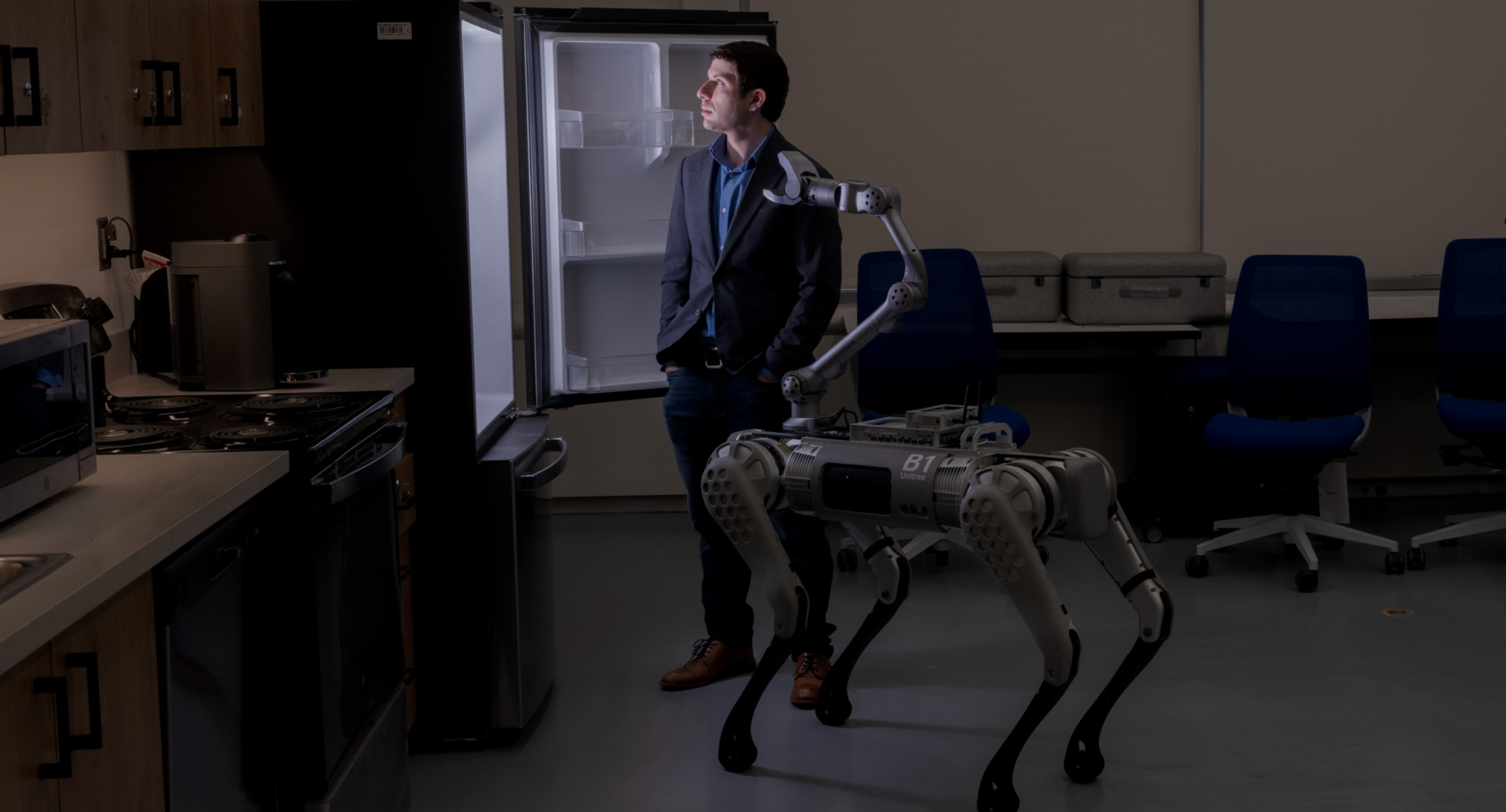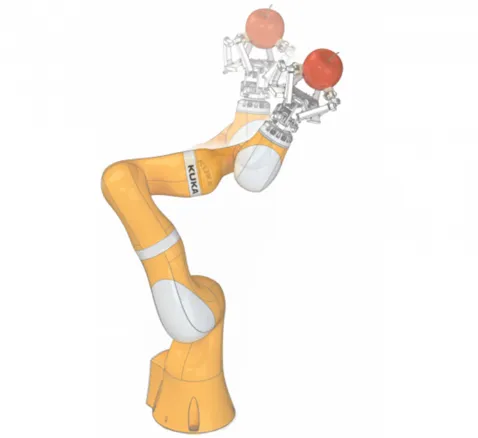Danny Rakita: Preparing robots for the real world
This story originally appeared in the 2024 edition of Yale Engineering Magazine.
With an oven, a coffee maker and fridge, the far side of Danny Rakita’s lab on the third floor of A.K. Watson Hall looks a lot like any workplace break room. Here, though, robots will be doing the meal preparations.
It’s part of Rakita’s effort to program robots to become accustomed to helping out in home care settings.
“We want to make deploying kinds of devices a lot more effective in the real world,” said Rakita, assistant professor of computer science.
Walk upstairs to the lab of Marynel Vázquez and you’ll see a device that she’s programming to help make pizza, as part of a robot-human cooking team. She’s developing ways for robots and humans to work together naturally, attuned to the sort of nuances that come with any seasoned partnership — where all parties are able to pick up on each other’s cues, like tone of voice or facial expressions.
“One of the things that drives a lot of our work is advancing how robots make sense of the social world that they’re in,” said Vázquez, assistant professor of computer science.
The number of roboticists in the School has more than doubled in recent years, and Rakita and Vazquez are just two of the faculty driving the new Engineering initiative known as Robotics for Humanity. As the field of robotics is poised to make an impact on modern life as pervasive and revolutionary as computers did a few decades ago, Yale Engineering is working to help integrate them seamlessly and beneficially into the home, the workplace, in healthcare and other aspects of our lives.
The Robotics labs are already immersed in interdisciplinary collaborations both within the School as well as with Law, Psychology, Medicine, Environment, Architecture, Management, and the Humanities, making Yale uniquely positioned to take on essential human challenges.
The School and the University are investing both resources and space in robotics helping to cement Yale as a leader in Robotics, enhance on-campus visibility and create a “must visit” space for students and visitors. Here’s a look at roboticist Danny Rakita, and some of the groundbreaking work that’s happening in his lab:
Danny Rakita: Preparing robots for the real world
Unlike people, robots have no common sense or intuition for their own motions. Without corrective measures, a robot might naively drive its elbow into a table or over-rotate a cup and spill water on the floor. Danny Rakita, assistant professor of computer science, sets them on course.

“At a high level, I develop algorithms that allow robot manipulators to effectively move in the world around us.
Danny Rakita
Assistant Professor of Computer Science
“At a high level, I develop algorithms that allow robot manipulators to effectively move in the world around us,” he said.
Specifically, these algorithms are designed to efficiently generate multi-step, long-horizon robot motions that achieve some high-level goals, all while satisfying key objectives and sub-goals along the way. Such objectives and sub-goals could include avoiding collisions, visually finding objects that are currently unseen, or gently nudging secondary items out of the way in a cluttered refrigerator. Further, Rakita aims to make sure that anyone working with or alongside the robot is able to intuitively specify new goals for the robot and correctly interpret what the robot will do next. That way, even people who aren’t experts can operate or collaborate with these robotics systems. It’s an interdisciplinary approach that uses techniques across robotics and computer science, such as optimization, planning, and machine learning.
“Overall, the goal of my work is to enable robots to help people with critical tasks,” he said. He notes that doing so can help advance the use of robots in numerous fields, including full-time homecare, home assistance, telenursing, robot surgery, disaster relief, large-scale manufacturing, nuclear materials handling, and space robotics.
More Details
Published Date
Mar 30, 2024


